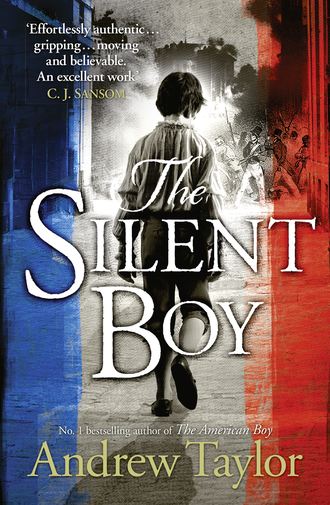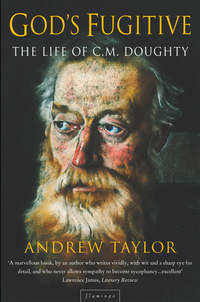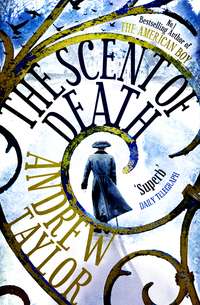
Полная версия
The Silent Boy
They turn another corner into a narrow street parallel to the Rue du Bac. Here is another, much smaller gate set in the wall of the house.
Monsieur Fournier looks up and down the lane. There is no one else about. He knocks twice on the gate, pauses, knocks once, pauses again and then knocks twice again.
The shutter slides back. Nobody speaks. On the other side of the gate there is a rattling of bars. The key turns. The gate opens – not to its full extent, merely enough to allow a man to pass through.
Fournier is the first to enter. Marie pushes the boy after him. As she does so she ruffles his hair.
They are in a cobbled yard with a well in one corner. A fat old man in a dirty brown coat stares open-mouthed at them. Fournier limps towards the great grey cliff of the house. The old man jerks with his head towards the house, which means that Charles must follow.
Charles breaks into a run. Behind him, he hears the gate closing.
It is only when he is inside the house, when he is following Monsieur Fournier up a long flight of stone stairs that he realizes Marie is no longer there. She has stayed on the other side of the black gate.
The room is almost as large as a church. Despite the sunshine outside, it is gloomy, for the shutters are still across the windows. Light filters through the cracks. One of the shutters is slightly open and a bar of sunlight streams across the carpet to a huge desk.
The desk is made of a dark wood ornamented with gold which sparkles in the sunshine. Its top is as big as his mother’s bed and it has many drawers. It is covered in papers – some in piles, some lying loose as if blown by a gust of wind.
Behind the desk, facing into the room, is a stout gentleman whose face is in shadow. He looks up as Monsieur Fournier enters, and Charles recognizes him.
‘I thought you’d be halfway to—’ The gentleman sees Charles behind Monsieur Fournier. He breaks off what he is saying.
‘This is more important,’ Fournier says.
‘What the devil do you want with that boy?’
Fournier advances into the room with Charles trailing behind him. One of the piles of paper is weighted down with a pistol. Charles wishes that he were back with Marie, lying in her bed against her great flank and smelling her strange, unlovely smell.
‘You don’t understand. He’s Madame von Streicher’s son.’
Charles knows that this man is very important. He is Count de Quillon, the owner of this house, the Hotel de Quillon, and so much else. The Minister, Maman says, the godson of the King and once the King’s friend. He sometimes came to see Maman, though more often he would send a servant with a message and Maman would put on one of her best gowns and go away in his great coach.
Only now, when the Count rests his elbows on the desk, does the sunlight bring his face alive. He is a broad, heavy man, older than Fournier, with a small chin, a big nose and a high complexion.
‘This is Augusta’s son?’ the Count says. ‘This? Are you sure? Absolutely sure?’
‘Quite sure, despite the dirt and the rags.’
‘How does he come here?’
‘He ran away and went to an old servant’s. She brought him a moment ago.’
‘So was he with his mother when—’
Fournier interrupts: ‘I don’t know. He was covered in blood when he turned up at the old woman’s house.’
‘It is of the first importance that we discover what happened. Where is the servant? She must know something.’
‘She ran off as soon as we came through the gate.’
The men are talking as if Charles is not there. He might be invisible. Or he might not even exist at all. He cannot grasp this idea. Nevertheless, part of him quite likes it.
‘Come here, boy,’ says the Count.
Charles steps up to the desk. He makes himself stand very straight.
‘What happened at your house that night? The – the night you ran away?’
Charles does not speak.
‘Don’t be shy. I can’t abide a timid boy. Answer me. Who else was there? I must know.’
‘The woman said he simply won’t speak,’ says Fournier. ‘No reason why he shouldn’t, of course – he’s perfectly capable of it. I remember him chattering away ten to the dozen.’
‘Answer me!’ the Count roared, rearing up in his chair. ‘You will answer me.’
Tears run down Charles’s cheeks. He says nothing.
Fournier shifts his weight from his left leg. ‘Give the lad time to get his bearings,’ he suggests. ‘Gohlis can see him.’
‘We don’t have time for all that,’ the Count says. He adds rather petulantly, ‘Anyway, he’s not some lad or other – his name is Charles. I should know.’ He beckons Charles closer and studies the boy’s face. ‘Were you there? Did you see what happened to—’
‘My friend, I think this—’
The Count waves Fournier away. ‘Did you see what happened to your mother? Did you see who came?’
Charles stares at the pistol on the pile of papers. Is it loaded? If you cocked it and put it to your head and pulled the trigger, then would everything stop, just like that? Everything, including himself?
‘It is most important that you tell us,’ the Count says, raising his voice. ‘A matter of life and death. Answer me, Charles. Who was there?’
But Charles is still thinking about the pistol. If he shot himself, would St Peter take one look at him and send him down to the fires of hell? Or would there simply be nothing at all, a great emptiness with no people in it, living or dead?
‘Oh for God’s sake!’ the Count snaps.
The boy recoils as if he has been slapped.
‘Very well, then.’ The Count tugs the bell pull behind him. ‘We’ll talk to him when he’s past his absurd shyness. Someone will look after him and give him some food.’
Fournier rests a hand on Charles’s shoulder. ‘But what about later? If we leave?’
‘Then he comes with us.’ Monsieur de Quillon bends his great head over his papers. ‘Naturally.’
Chapter Three
Charles is placed in the care of an elderly, half-blind woman. She lives in a room under the roof over the kitchen wing. Opening out of her chamber is a smaller one, which has a barred window. This is where Charles sleeps.
On the second night, he has bad dreams and he wets the bed.
On the third day, Monsieur Fournier summons him. He is in a salon overlooking the great courtyard at the heart of the Hotel de Quillon.
He is not alone. Dr Gohlis is there. He is another gentleman who used to call on Maman in the old days. He is young and stooping, a German from Hanover. He has cold hands.
In heavily accented French, the doctor asks Charles his name, and Charles does not answer. He asks Charles how old he is. Then he asks exactly the same questions in English and German, and all the while Charles stares out of the window at the weeds in the courtyard and imagines the words rising into the sky like startled birds.
Dr Gohlis examines him, looking at his teeth and poking at his belly with his forefinger. He walks behind Charles and claps his hands, making Charles twitch.
‘There is no physical cause for his silence that I can see. Everything is perfectly normal,’ he says. ‘You tell me he eats and moves his bowels. I could try purging or bleeding, but I doubt it would answer.’
‘He has sustained a great shock,’ Fournier says, throwing an unexpected smile at Charles. ‘Could that have disturbed his faculties and made him mute?’
‘Indeed, sir – that may very well be the case. If the hypothesis is correct, then it follows that the best course of treatment may be another shock. If one shock has removed his powers of speech, then a second may restore them.’
‘They say he wet the bed the other night.’
‘Really? Was he beaten for it?’
‘I do not know.’
‘If it happens again, I would advise it, for his own good. He will achieve nothing without discipline.’
‘Thank you, Doctor,’ Monsieur Fournier says after a moment. ‘I won’t detain you any longer.’
Dr Gohlis bows and leaves the room. He does not look at Charles, who is still standing by the window.
As the door closes, Fournier opens a bureau. He takes a sheet of paper from one of its drawers and a quill from another. He puts them on the flap and uncovers the inkstand. He places a gilt chair in front of the bureau.
‘Sit, dear boy. Take the quill.’
Charles obeys. He dips the pen in the ink without being asked.
‘Good,’ says Fournier. ‘Your mother told me that you are an apt student. Pray begin by writing your name.’
Charles bends his head. He writes. The quill scratches on the heavy paper.
‘Now write my name.’
Charles writes.
‘Excellent. And now – write the names of those who visited your mother in your cottage in the Rue de Richelieu.’
The pen moves again. The tip of the feather brushes Charles’s chin.
Monsieur Fournier comes to stand at his shoulder. ‘Let me see what you have written.’
Charles hands him the sheet of paper, the ink still glistening. He has answered each question with lines that go up and down, across and diagonally. They are black marks on white paper. They reveal nothing other than themselves.
The following morning, Charles wakes with the light.
Before he opens his eyes, he is aware of rustles and small movements which he thinks must be rats and mice, which come and go at will and treat the place as their own. He opens his eyes.
Without warning, his stomach gives a painful twitch as if someone has punched him there. He gasps and sits up in bed.
A boy is standing beside the window, his outline clearly visible in the light filtering through the cracks of the shutters. He is smaller than Charles and he is very still. He has his back to the room. He stands upright, his shoulders squared like a soldier on parade.
Just for an instant – for a hundredth of a second – Charles feels joy. He is not alone.
His feelings are no sooner there than they are gone. His lips move. They form the words: Who are you? But the words have no sound so the boy cannot hear them.
Charles is afraid as much as excited now. He swings his legs out of bed.
The boy does not move.
The boards are cold. Draughts swirl around Charles’s ankles and rise up his legs under his nightshirt. He shivers, partly from fear.
He takes a step nearer the window, nearer the boy. Then another, and another. Between each step he pauses. It is like the game he used to play with his mother when he was very, very young.
The strange boy does not even twitch. Step by step, Charles draws nearer to him. Still the boy does not move. He has been turned to stone, Charles thinks, he is a statue. He feels pity, though he knows the boy cannot really be like this; but, if he were, surely that would be even worse than losing your voice?
Charles takes a deep breath, stretches out a hand and touches the boy’s shoulder. It is cold, a little damp and hard – hard like wood, not stone. Charles walks around him and opens one of the shutters. The light from the window falls on the boy’s face.
Or rather – the light falls on the place where the face should have been.
The boy’s eye sockets are empty. There is nothing but a hole where the nose should be. The cheeks are sunken. The lips are almost gone. He still has some of his teeth. He is grinning. He will always grin because he can do nothing else.
Charles draws in a long, shuddering breath. His face contorted, he breathes out: a silent scream.
The door creaks. A current of cold air sweeps into the room.
Dr Gohlis is on the threshold.
‘I see you have found my little friend,’ he says in his strange, thick voice. ‘His name is Louis.’
As he speaks, he comes closer. Charles cannot move.
‘Who knows who this boy was?’ the doctor says. ‘Were you aware that before the Revolution, the poor were so desperate that they sent their children to prison – they sold them on the streets – they disposed of them like unwanted kittens?’
Charles stares at Dr Gohlis over the boy’s shoulder. He wishes with all his heart that the boy was still alive, that he was not alone with the doctor.
‘But even dead boys may be worth a few sous. In life they were quite useless to society. But in death, the lucky ones are granted the chance to serve a higher good.’
Dr Gohlis is standing by Louis’s shoulder now. He throws back the second shutter. More light floods over the boy. Charles covers his mouth with his hands when he sees what has been done.
‘So their parents take the money and drink themselves senseless in the nearest wine shop,’ the doctor continues. ‘And a man of science takes the boy.’ He stretches out a surprisingly long arm and grips the right wrist of the figure. ‘The dead boy. The man of science conveys the boy to another man, a man skilled in the art of flaying skin from a body. Believe me, it is not easy to do it properly, to do it well. It is one thing to remove the skin. It is quite another thing to do it without harming what lies beneath.’
The doctor releases the wrist. His fingertips play on the arm of the boy, patting it gently, rising from the wrist up to the elbow up to the shoulder and then to the neck. He points at a place on the neck.
‘See? This is the line of the great artery which carries blood to the heart. This is bone, here, and here the humerus, and here we have the scapula.’ The hand flutters higher. ‘Note the cheekbone. Do you see how some of the skin is still attached? The man who did this was truly an artist.’
The doctor’s hand sweeps down and grips Charles’s neck. Charles tries to pull away but Dr Gohlis tightens his hold. His hand is as cold as a dead thing, colder than the flayed boy.
‘After this boy was flayed, shall I tell you what happened then? He was covered in plaster, every inch of him. When the plaster was dry, they cut it open – and there is a mould of the dead boy. When you have a mould, you can make many copies. The copies are painted, in this case by another artist who is trained in the work of portraying what lies beneath, the inner mysteries under the skin. See how the muscle and tendon and bone stand out in their proper colours. Is it not a marvel?’
His grip is painfully tight. He forces Charles to move around the boy and to come closer. Now he is looking at the boy’s back.
‘These poor simulacra of humanity are called écorchés,’ Dr Gohlis says, ‘the flayed ones. Isn’t that droll? They assist in the instruction of students of medicine and drawing who are obliged to learn about the inward architecture of the human body. Observe.’
He picks up Charles’s right hand with his own left hand. Charles wills himself not to resist, not to pull away. The doctor forces him to extend his index finger. He runs the finger down the spine of the écorché.
‘Here are the cervical vertebrae,’ the doctor announces. ‘And below, in the middle of the spine, here are the thoracic ones. See the natural curve of the spine. Is it not elegant? And further below still, here are the lumbar vertebrae. They are much larger than the cervical ones, are they not? That is because they need to be, for they carry a greater burden.’
The doctor lowers his head to the same level as Charles’s.
‘You see?’ he says. ‘You will never forget this lesson, will you? Not while you live and breathe. You will always remember what lies beneath.’
He stares into Charles’s face. Charles stares back and thinks of nothing but the blank grey sky beyond the window.
‘Above all, you should draw this conclusion from it. You should remember that a boy who is useless in life may at least be useful in death.’ Dr Gohlis releases Charles’s neck and pushes him against the écorché boy. ‘You are no use at all to us if you will not talk.’
As he is speaking, Dr Gohlis moves towards the door. He pauses on the threshold.
‘I should examine him carefully if I were you. If you do not find your voice, you may be like that yourself one day.’
Chapter Four
On the very night before the letter arrived, Savill thought of Augusta. He had not thought of her for months, perhaps years. These were the dog days of the summer. Perhaps that had something to do with it, for the heat bred unhealthy desires. The long scar on his right cheek itched.
Before getting into bed, he had tied back the curtains and opened the window as wide as it would go. The smell from the cesspit wafted up from the yard beneath. These houses in Nightingale Lane were as old as Good Queen Bess, and so was their sanitation.
It was not the heat alone that kept him awake. He had the toothache, a savage sensation that drilled into the right-hand side of his jaw and sent tendrils of discomfort among the roots of the surrounding teeth. He had taken drops that had blunted the pain. But they did not send him to a comfortable oblivion: instead, they pinned his body to the bed while leaving his mind free and restless, skimming above the surface of sleep.
London was never quiet, even on the darkest night. He heard the watch calling the hours, the cries of drunken passers-by, the hammer-blows of hooves and the rumble of distant wagons bringing their loads through the night to Smithfield and Covent Garden.
The heat warmed the fancies of his brain to an unhealthy temperature and stirred into life the half-buried memory of another hot night. He had supped with fellow clerks at the American Department and returned late to the lodgings on the wrong side of Hill Street. It was their first married home. The apartments were too expensive for them but the address was genteel and Augusta had argued that a man did not rise in the world without seeming worthy to rise; and nor did his wife.
He found her sitting on the ottoman at the foot of the bed. There were two tall candles on the mantel. The edges of the room were dark, the corners populated with shifting shadows. But Augusta herself was coated with a soft golden glow.
She wore a simple white nightgown, so loose at the neck that it revealed most of her smooth shoulders. Her hair was down. She smiled up at him and held up her hand. The movement dislodged her gown and he glimpsed the swell of her breasts and the darkness between them.
This was how it had been in the beginning of their marriage: Savill had revelled in the contrast between Augusta by day and Augusta by night – the one icily elegant, ambitious to the point of ruthlessness, calculating yet so strangely foolish; and the other, everything a man could desire to find in his bed, and more. Even when he grew to dislike her, which did not take long, she retained her ability to excite him.
‘I have an appetite,’ she said that night as she sat astride him, her belly already swollen with Lizzie. ‘And you shall feed me.’
The excitement drained away from him, leaving a residue of bitterness, of regret, that mingled with the dreary ache of his tooth. The drops were making his head swim and they had given him a pain in his stomach. His eyes were full of sand. He felt nauseous but lacked the strength to roll out of bed and find the chamber pot.
At times like this, in these long, sleepless nights, Savill wondered whether he, too, had been to blame for what had happened. But that was folly. Memories are not real, he told himself, they are little more than waking dreams; and there is no guilt in dreams, neither hers nor mine, and no betrayals, either.
For are we not innocent when we dream?
The next morning, the servant brought up the letter when Savill was at breakfast with his sister and Lizzie. He noticed it had been franked by an obliging Member of Parliament in lieu of postage. He broke the heavy seal. As soon as he unfolded the letter he recognized the handwriting as that of a man who no doubt included many Members of Parliament among his intimate acquaintance.
The women were watching him. He read the letter twice. The questions crowded into his mind but he had long ago schooled his face not to betray his feelings.
Savill looked up. ‘I shall not dine with you today after all. I am obliged to go out of town on business.’ He registered the disappointment spreading over Lizzie’s face, then watched her instantly suppressing it. ‘Tomorrow,’ he said. ‘There’s always tomorrow.’
Why now? he wondered. Why a summons to Vardells, not Westminster? And again, and above all, why should Rampton want to see me now?
‘She is dead.’
Twelve feet above Savill’s head, plaster putti writhed, a pair of them in each corner of the salon. Each set of twins were shackled together with garlands. The infant boys had short, stubby limbs and plump, inflated bodies. Their eyes were sightless blanks, their lips slightly parted.
Give it time, Savill thought. He imagined the gilt and the whitewash fading and cracking, staining with candle grease, and the plaster crumbling and flaking from the ceiling: plaster snow.
‘Did you hear me, sir?’ Mr Rampton said.
The grandfather clock chimed. Savill counted the quarters and then the stroke of the hour: five.
‘Dead,’ Mr Rampton repeated, this time more loudly. ‘Augusta is dead.’
Savill’s eyes dropped slowly to the marble chimney piece. On one side of the fireplace was a bronze man with bulging muscles restraining a rearing horse with one arm while waving to something or someone with the other. What in heaven’s name was it all for?
Mr Rampton coughed. ‘Augusta. My niece, sir.’
Savill looked at him. ‘My wife, sir.’
Silence settled like dust in the air. Savill looked across the room at Rampton, who was sitting in the big wing armchair on the left of the fireplace. The chair was angled to catch the light from the two tall windows. Beside the chair was a lectern on wheels with candles on either side of the slope and a sturdy quarto, the pages held open with clips.
Rampton scratched the fingertips of his left hand on the arm of the chair. His face was wrinkled but still ruddy with the impression of good health. He looked smaller than he had been. Perhaps age was shrinking him as his fortune increased. The Lord giveth, as Savill’s father used to say with a certain grim satisfaction, and the Lord taketh away.
‘Of course,’ Rampton was saying, ‘your unhappy wife, Mr Savill, despite everything. And it is a cause for sorrow that the unfortunate woman is dead at last. We must not judge her. We may safely leave that to a higher power.’
Rampton was not a big man but he made good use of what he had. He wore a sober grey coat and very fine linen. His hair was his own but he still wore it powdered, a political statement in these changing times: a public demonstration of his attachment to old virtues and old loyalties. The heels of his shoes were higher than was usual for gentlemen’s shoes. He looked every inch a statesman, albeit a smallish one, which was a pretty fair description of what he was.
‘The poor woman,’ he went on. ‘Alas, she paid the price for flouting the laws of God and man.’
The rectangle of sky outside the nearer window was cloudless, a deep rich blue. Against this backdrop danced black specks, sweeping, diving and climbing with extraordinary rapidity. The swallows and the martins had begun their evening exercise. They would be vanishing soon as they did every year, though where they went, no man knew.
‘Those confounded swallows,’ Rampton said. ‘You cannot begin to comprehend the mess they make on the terrace.’ He too was staring out of the window; he too was glad of an excuse to think of something other than Augusta. ‘They nest under the eaves of the house or in the stables – I’ve tried for three years to get rid of them. But wherever they nest, they use my terrace as their privy.’
‘Where?’ Savill said.
‘What?’ Rampton turned from the window, away from the swallows, from one annoyance to another. ‘Paris. The foolish, foolish girl.’
‘How did you hear, sir?’
‘Through the Embassy. It happened just over a week ago.’










